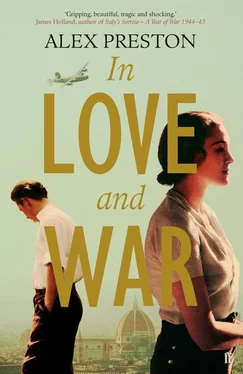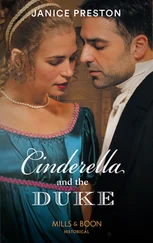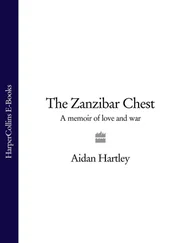Esmond smiles.
‘Oh, yes. Helped to gaol a gang of child labour racketeers, that one. It was read aloud at the trials in Messina. But fiction? No, you need money in the bank for fiction.’
He turns his head, which seems to Esmond like a statue in the moonlight: hewn and marmoreal.
‘Forsake books,’ he says. ‘Go out among people and nature and think it through for yourself. Keep a diary, if only dates and places. But more than anything, don’t scatter the gold of your youth. Don’t lose your life in books. Get out and live. Michael Arlen said of me — or was it Ronald Firbank? One of them said I was the least literary writer they’d ever met. That I might as well have been a lumberjack.’
Esmond smiles again. ‘I used to write with a friend of mine, the one in Austria. I find it very hard to know if anything I write’s any good without showing it to him. He gave me the necessary confidence.’
He pictures Philip in his digs in Park Terrace, chopping benzedrine tablets into the wine on the desk. The electric moment when he handed over the notebook, and Philip sprawled on the bed, whistling and smiling, his Cambridge-blue eyes galloping over the pages as he read.
‘I never show my work to anyone,’ Douglas says. ‘Writing’s like shitting. If someone’s cheering you on, it’s hard to get going, but give it time and space and it’ll come. And by the way, if you don’t eat well, you won’t shit well.’ He pauses. ‘Did you love this chap?’
Esmond turns to look out over the river. It is past eleven. A gentle breeze is blowing, stirring the hillside and making tight waves on the surface of the water.
‘I still do, I suppose,’ he says.
‘And where is he now?’ Douglas’s voice is suddenly very soft, very kind, like the breeze.
‘He went back to Austria. I think his parents were trying to emigrate to America. I haven’t heard from him for a little while.’
‘Ah, a Jew? Rotten business this. Shames a once-great nation. Hitlerism has its roots in the Old Testament, of course. All that pure race nonsense in Ezra and Nehemiah. Germans are dreadful Bible readers. Don’t give up on him, though. It’s good to be in love while you’re writing. Each of my books ripened under the rays of some attachment or other. Unless I am in love I have no impulse to write.’
They are silent for a while, smoking and watching the river. Then Douglas sits forward slowly and puts an arm around Esmond’s shoulders.
‘Are you sure you’re not throwing your lot in with the wrong side?’
‘The station? It’s for my father, for his Party.’
‘Must you?’
‘What’s the alternative? Communism? I’d rather Mussolini than Stalin.’
‘Break free from what you were born into, Esmond. This isn’t you, the politics. Embrace your freedom, embrace the flesh. You should go to Goa. Astonishing place. Why don’t you sail to Goa and write a life of St Francis Xavier? Dee-lish curries. Find yourself an ebony youngling and write in a little timber-framed hut under palm trees. Don’t let your family write the script of your life.’
They sit for a while longer, then go in to join the party. A bottle of Punt e Mes is passed around. Reggie Temple is asleep on the sofa, Pino talking in Italian to Fiamma and Gerald. Wolton sits on his own, hands on knees. Douglas looks down at him and lets out a snort.
‘Why do you insist on coming here, Eric? For God’s sake can’t you see you’re wasting space.’
Wolton’s grey skin colours momentarily but he stares at his hands.
‘Because I love you,’ he says, so softly that he has to repeat it. ‘I love you, Norman.’
‘So you come running after me as if I were a ballet girl? Not on your life! Clear out!’ Douglas picks up his stick and raps it hard against the floor. ‘You were worth talking to twenty years ago. But now? I simply don’t want to see you. Clear out!’
Wolton staggers to his feet. Reggie Temple has woken up and looks out blearily. Wolton moves for the door.
‘Norman, I—’
‘Clear out!’
Ten minutes later, Esmond and the others leave too, Reggie Temple walking with them as far as the Ponte Santa Trinità.‘Such a sad figure, the Wolton feller,’ he says, as they make their way along the deserted Lungarno. ‘Norman’s frightful to him, but I can’t blame him. Shows up here after so many years.’
‘What’s his story?’
‘He was one of Norman’s boys. Norman’s wife caught them buggering in the marital bed some twenty years ago. But he was old for Norman even then. He has a theory, you see, that boys after puberty suffer a loss of body heat. That he ought to sodomise only the very young in order to keep himself youthful.’ He lets out a low chuckle. ‘It’s all in that book of his, Paneros . Quite barmy.’
‘And now Eric’s back.’
‘Yes, after a failed marriage and some kind of collapse, he seemed to think Norman would find him irresistible. Really it is too sad.’
They leave him at the bridge and walk up to the Institute. It is dark and silent inside. They say good night, each of them a little drunk, a little sombre, and fall asleep, the bats riding the cool air outside their windows.
Esmond realises he has been putting off seeing Carità, disgusted and, he admits to himself, scared by what the little man did to Goad. He would rather face his father and Mosley at once than a brute like Carità. But there is no word from England, nothing from Goad, and so he keeps his head down, waiting, thumbing through The Wireless Operator’s Handbook whenever he feels particularly guilt-stricken.
One morning, a Saturday, Fiamma comes into Esmond’s room early. She sits at the end of the bed in the darkness. He sees that she’s crying as he pulls himself awake.
‘What is it?’
‘They’ve killed Carlo and Nello in Paris. Oh, Esmond—’ She reaches over to take him in her arms and begins to sob. After a while he regretfully disentangles himself, stands to open the window, and looks back to see her slumped on the bed with her fingers in her hair. It is another hot day; the room is close, the breeze warm and dusty from the street. He sits beside her in his nightshirt and places an arm around her, whispering softly.
‘Who were they? Died how?’
‘Friends of my father. They founded Giustizia e Libertà. Heroes—’ She unravels into tears. Esmond finds a handkerchief in a drawer and offers it to her, but she pushes it away, drawing her arm across her face. He picks up her hand and clasps it between his own.
‘Who killed them?’
‘Fascists,’ she spits at him. She begins to speak very swiftly. ‘They are taking everything from me,’ she says. ‘First my father, then the house I grew up in. My friends, who are either running off to join them, or in gaol because they won’t. They took dear, gentle Goad. Now Carlo and Nello.’ She bangs her hand down on the bed and turns to him. ‘I never understood what it meant, totalitarianism. You have this word in English, too?’ He nods uncertainly. ‘They are intruding into every aspect of my life, taking over all the things that are dear to me just as they took over Libya and Abyssinia. I hate them, Esmond.’
Gerald comes into the room. Fiamma looks up at him damply.
‘Where were you?’ she says. ‘I came looking for you this morning but you weren’t in bed.’
He kneels down beside her.
‘I’m so bloody sorry. I saw it on the front page of the Nazione . It was the Cagoule, of course, the French Fascists. On Musso’s orders. Bastards.’
She wipes her face again with a slippery arm.
‘Listen,’ he says, with a doggish grin, ‘I’ve something to cheer you up. Get dressed and meet me in the courtyard. Come on, Fiamma. There you go.’
Читать дальше












